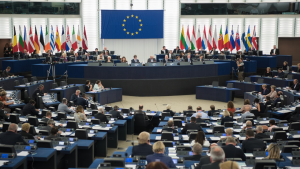
MEPs call for ambitious legislation on corporate due diligence
MEPs are calling for binding legislation that makes companies accountable for any violations of social and environmental rights in their supply chains. The European Commission

MEPs are calling for binding legislation that makes companies accountable for any violations of social and environmental rights in their supply chains. The European Commission

A circular economy is regularly presented as a possible solution to the environmental crisis facing the world today. The question is: is that economic model compatible with fair trade? How can fair trade apply circular economy principles, and what benefits would this bring?
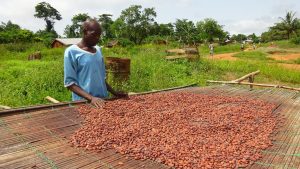
Despite an agreement with Ghana on a more remunerative price for farmers, Côte d’Ivoire is unable to maintain the price of its cocoa. The pandemic and sluggish demand are not helping, but the manufacturers are also playing their part.
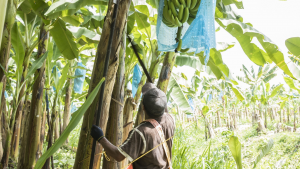
Fair trade, ‘the good cause’, does not give you a licence to deliver mediocre quality. Frank Vermeersch Tweet The fact that today more than 1
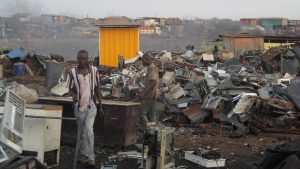
Studies show that the CO2 impact drops by as much as 28% if you use a laptop for six years instead of four. Kim Claes

When shopping, don’t focus on what’s in fashion, but look for your own style that suits you. Tonny van Bavel Tweet In 2012, Mechelen couple
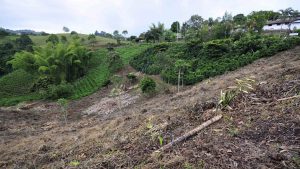
Due to climate change the suitable production area for coffee will be reduced with 50% by 2050. Climate change is, unfortunately, an irreversible process in the short-term. If we want to keep our lovely cup of coffee, we must respond to it with bold initiatives that require the implication, flexibility, and innovation from all the coffee value chain actors. Four possible solutions can prevent the unavoidable last cup of coffee.
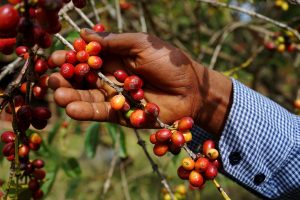
In 2002, a number of farmer groups near the Nyungwe Forest in southwest Rwanda set up the coffee cooperative KOAKAKA. Step by step they expanded their organisation to include around 70 collection points where members bring their freshly picked berries, and two washing stations where the first steps of the process take place. With TDC’s coaching in marketing and business support, they managed to have a 69% increase in the sales price.

On Thursday 4 February, Minister of Development Cooperation Meryame Kitir and Deputy Prime Minister and Minister of Economy and Employment Pierre-Yves Dermagne received the letter from two signatories, Ann Claes (JBC) and Bruno Van Steenberghe (Kalani), at the Evere branch of JBC.

Belgian and European fair trade in local products is on the up. At least 52.4 million euros worth was sold in 2019. In 2019 the

MEPs are calling for binding legislation that makes companies accountable for any violations of social and environmental rights in their supply chains. The European Commission

A circular economy is regularly presented as a possible solution to the environmental crisis facing the world today. The question is: is that economic model compatible with fair trade? How can fair trade apply circular economy principles, and what benefits would this bring?

Despite an agreement with Ghana on a more remunerative price for farmers, Côte d’Ivoire is unable to maintain the price of its cocoa. The pandemic and sluggish demand are not helping, but the manufacturers are also playing their part.

Fair trade, ‘the good cause’, does not give you a licence to deliver mediocre quality. Frank Vermeersch Tweet The fact that today more than 1

Studies show that the CO2 impact drops by as much as 28% if you use a laptop for six years instead of four. Kim Claes

When shopping, don’t focus on what’s in fashion, but look for your own style that suits you. Tonny van Bavel Tweet In 2012, Mechelen couple

Due to climate change the suitable production area for coffee will be reduced with 50% by 2050. Climate change is, unfortunately, an irreversible process in the short-term. If we want to keep our lovely cup of coffee, we must respond to it with bold initiatives that require the implication, flexibility, and innovation from all the coffee value chain actors. Four possible solutions can prevent the unavoidable last cup of coffee.

In 2002, a number of farmer groups near the Nyungwe Forest in southwest Rwanda set up the coffee cooperative KOAKAKA. Step by step they expanded their organisation to include around 70 collection points where members bring their freshly picked berries, and two washing stations where the first steps of the process take place. With TDC’s coaching in marketing and business support, they managed to have a 69% increase in the sales price.

On Thursday 4 February, Minister of Development Cooperation Meryame Kitir and Deputy Prime Minister and Minister of Economy and Employment Pierre-Yves Dermagne received the letter from two signatories, Ann Claes (JBC) and Bruno Van Steenberghe (Kalani), at the Evere branch of JBC.

Belgian and European fair trade in local products is on the up. At least 52.4 million euros worth was sold in 2019. In 2019 the